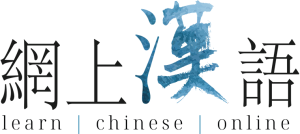Vocabulary and phonetics of lesson 7
Learn Chinese: phonetic and vocabulary 7
Note: when the translation of the character is between brackets, it means that this character is not used alone. This does not mean that it has no meaning, just like the roots of words in our Western languages.
zhè :
this
zhèr :
here. Notice the change of meaning by adding the suffix er and the contraction between the syllable and the suffix to form a single syllable.
nà :
that
nàr :
there
bàba :
dad. Notice the loss of the tone of the second syllable. This is common in family titles.
māma :
mom
zǐ :
(son) / suffix
érzi :
son
nǚ :
(girl, woman). u is pronounced as the vowel "o" in "too" behind the consonants y, j, q, x . Behind the other consonants it is pronounced as the German "ü" or French "u". Add the umlaut to pronounce it "o".
nǚ'ér :
daughter. Note the apostrophe that occurs when a syllable that begins with a vowel is preceded by another syllable.
yǒu :
to have. ou is pronounced 'O + u': the sound 'o' is strong and ends on a small 'u'.
péngyou :
friend. The letter p is pronounced with an explosion of air.
gè :
human classifier / general classifier (see grammar).
zuò :
to do
gōngzuò :
work. zuò is not the same character as "to do" even though the pronunciation is the same.
yīyuàn :
hospital
yīshēng :
doctor
xuéxiào :
school
hé :
and. (see the grammar)
xiǎng :
to think / to want to
piàoliang :
to be pretty (adjectival verb)
